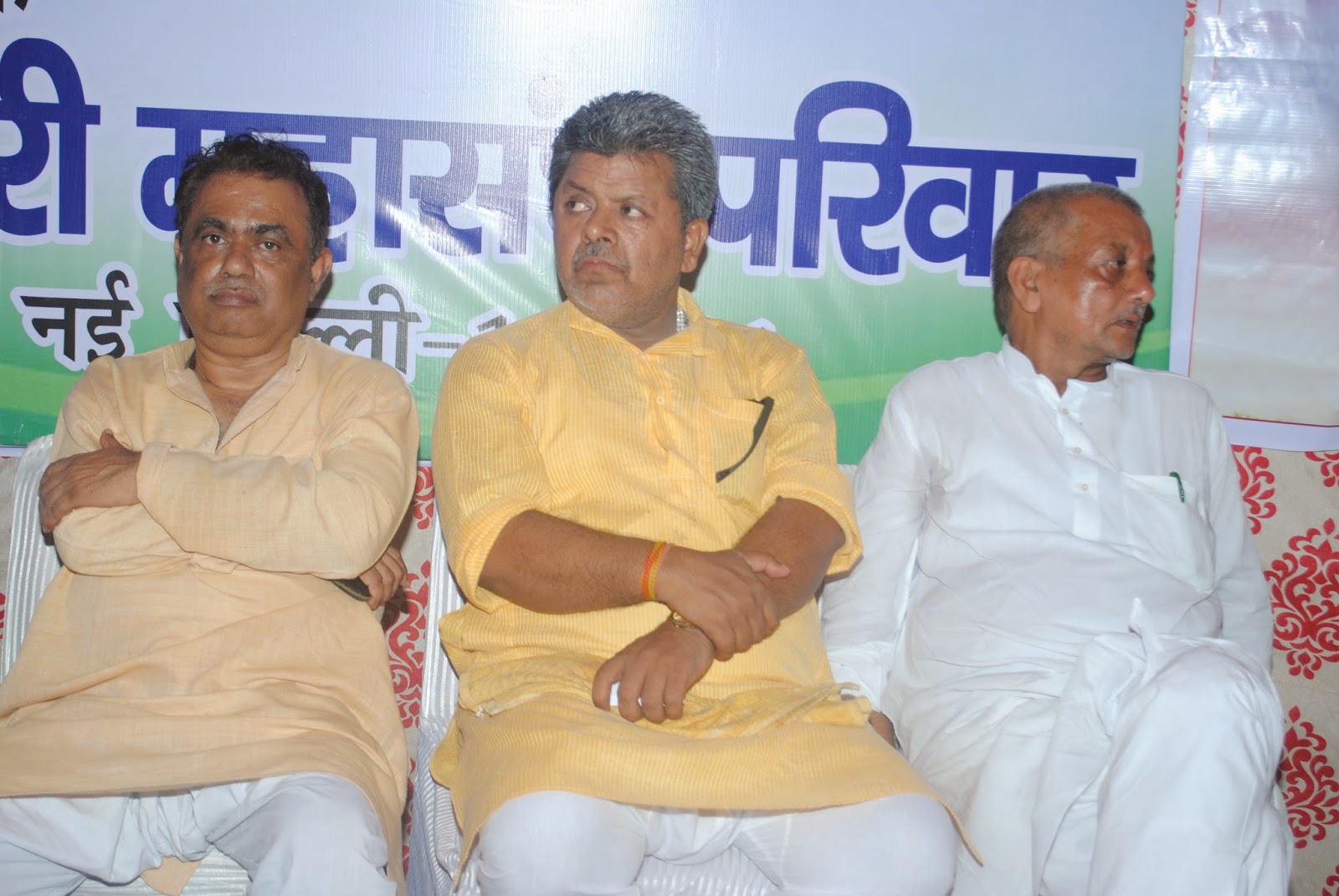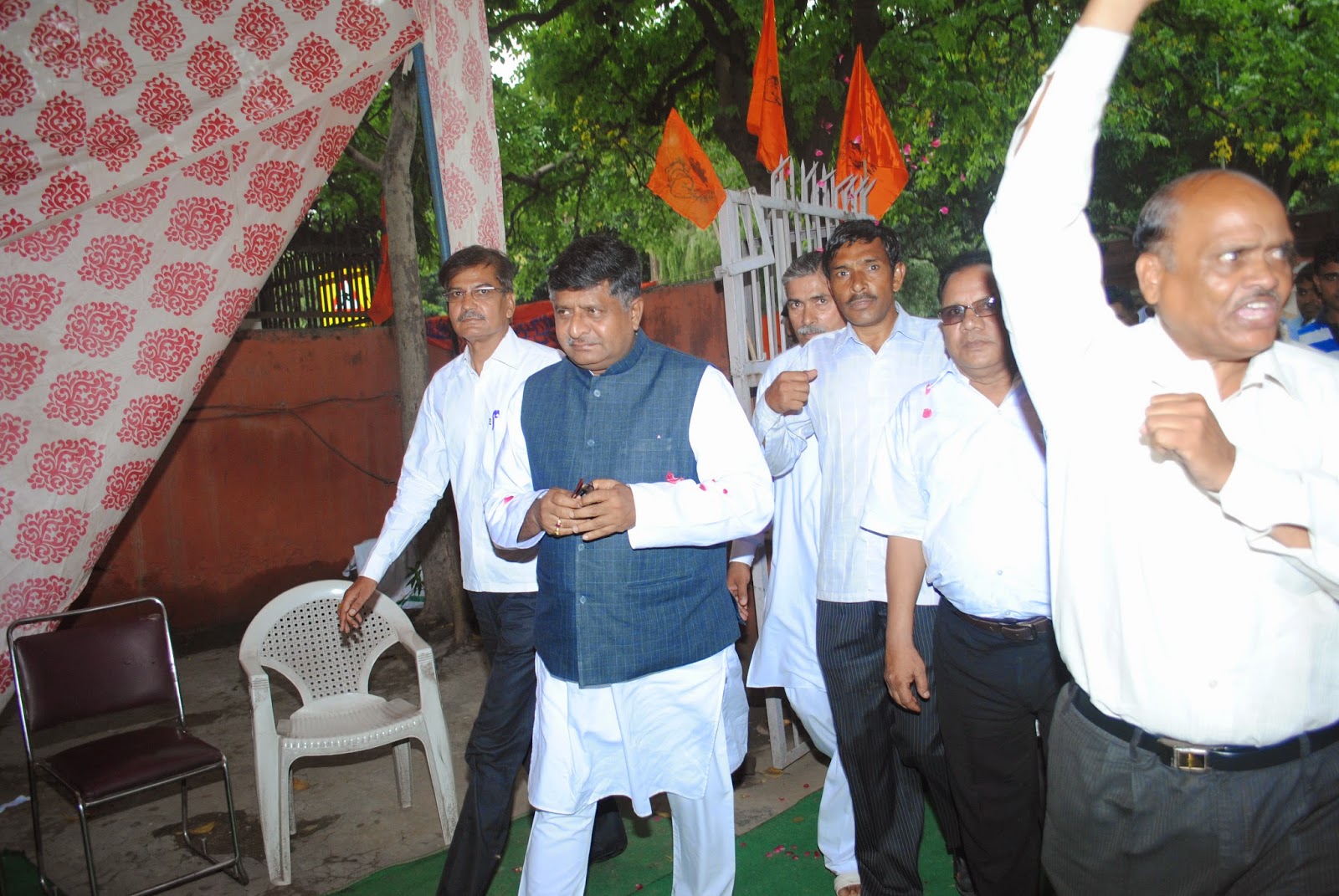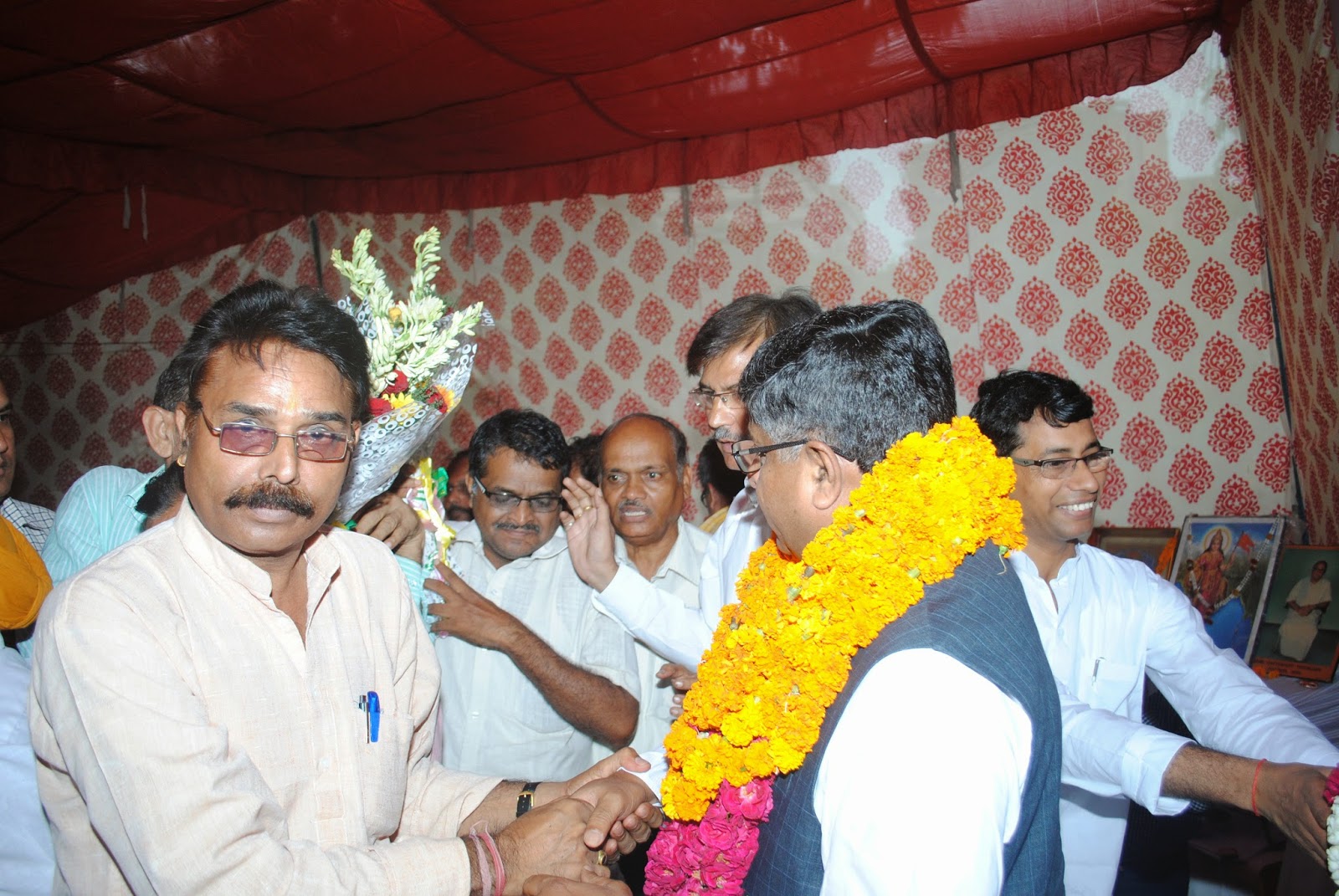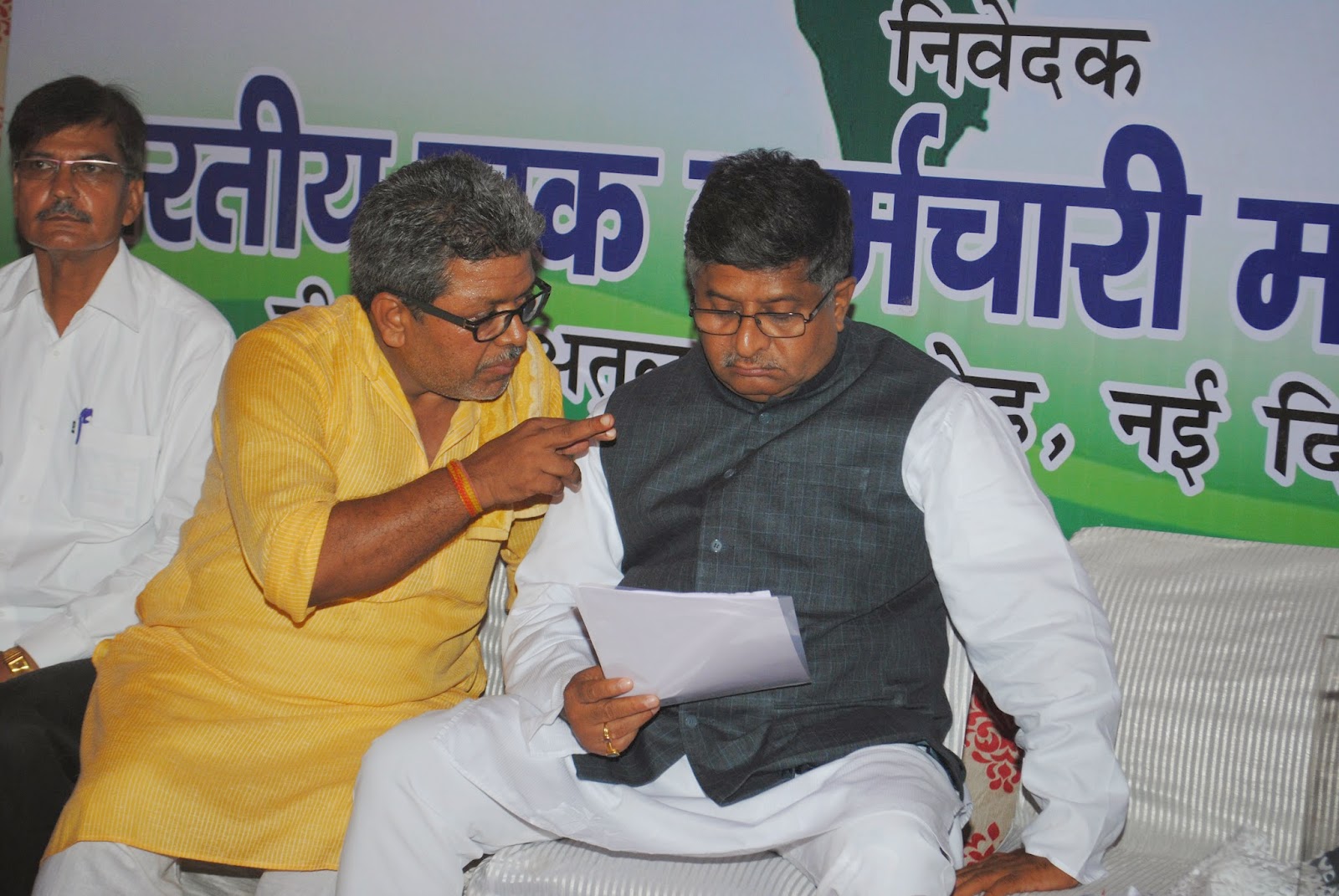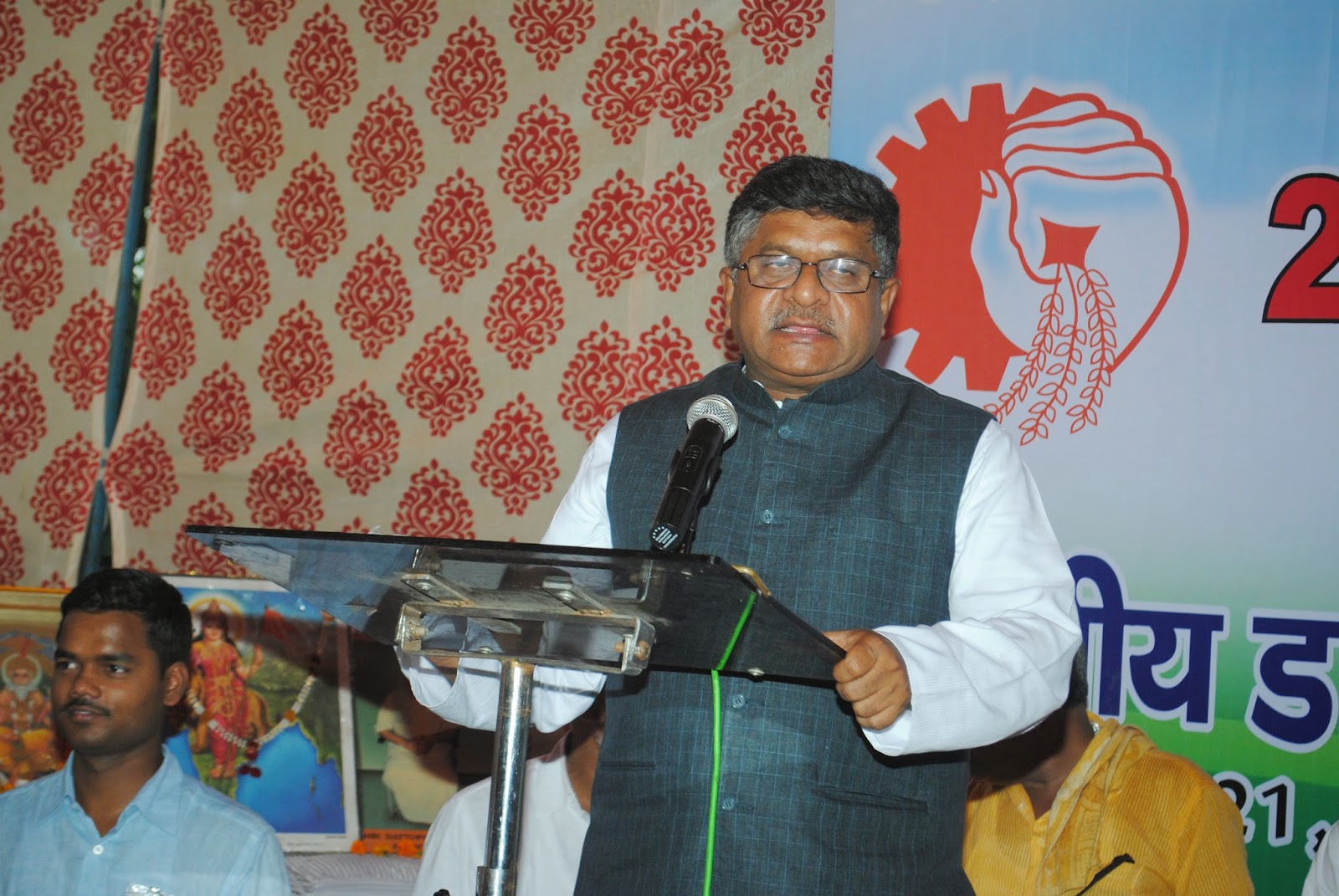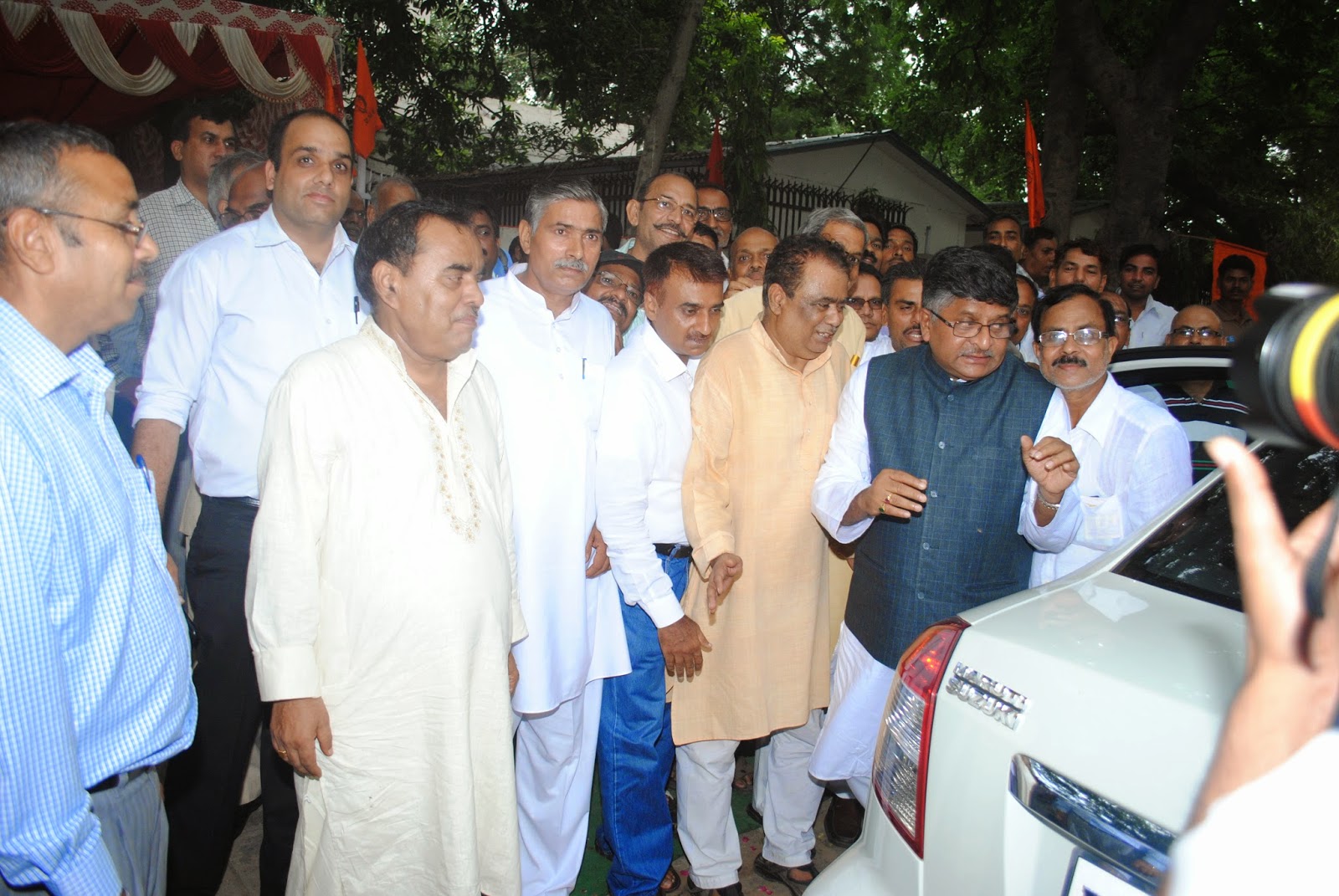Wednesday, 27 August 2014
Saturday, 23 August 2014
Admissibility and Annual Ceiling in Children Education Allowance and Hostel Subsidy – Minister’s Reply
Reimbursement of Children Education Allowance and Hostel Subsidy
admissible if Institution where children are studying is affiliated to
any board or recognized by the Central or State Government or Union
Territory Administration or by University or a recognized educational authority
CEA Annual Ceiling : Rs. 18000/- per child
CEA Annual Ceiling for disabled children : Rs. 36000 per child
Hostel Subsity Annual Ceiling : Rs. 54000/- per child
Hostel Subsidy for disabled children : Rs.9000 per month per child
Gist of Minister’s Reply in the Parliament on Children Education Allowance and Hostel Subsidy
Children Education Allowance for Central Government Employees – Annual Ceiling and Details of Admissible Institutions
While answering to a question in Parliament on 18.7.2014, Finance Minister Shri Arun Jaitley said in a written form regarding the details of
Children Education Allowance that it has been informed by the
Department of Personnel and Training that the annual ceiling limit for
reimbursement of Children Education Allowance (CEA) is 18,000/- per
child. The Hostel Subsidy shall be 4,500/- per month per child.
The annual ceiling for reimbursement of CEA for disabled children of Government employees is 36,000/- per annum per child and the rates of Hostel Subsidy for disabled children ofGovernment employees is 9,000/- per child per month.
These revisions are applicable with effect from 1st January, 2014.
The reimbursement is admissible for the children studying in
institutions affiliated to any Board or recognised institution, whether
in receipt of Government aid or not, recognised by the Central or State
Government or Union Territory Administration or by University or a
recognised educational authority having jurisdiction over the area where
the institution is situated.
Source: PIB
Economy in use of paper in Central Government Offices – Finmin Orders on 22.8.2014
Economy in use of paper in Central Government Offices – Finmin Orders on 22.8.2014
No.25(6)/E.Coord-2014
Government of India
Ministry of Finance
Department of Expenditure
North Block, New Delhi,
22nd August. 2014
Office Memorandum
Subject :- Economy in use of paper.
Ministry of Finance has been issuing instructions from time to time on
expenditure management, fiscal discipline and on the need for economy
and rationalization of Government expenditure. Government is one of the
major consumers of paper. Injudicious use of paper not only leads to
infructuous expenditure but also impacts the environment as trees are
the major source of paper pulp production. Instructions on judicious use
of paper have been issued by this Department in the past and similar
instructions are also contained in the Manual of Office Procedure (MOP)
published by Department of Administrative Reforms and Public Grievances.
With a view to further stress the importance of economy In use of paper
in Government offices, following instructions are issued for strict
compliance by all concerned : -
Aadhaar Enabled Biometric Attendance System
(AEBAS) be implemented in all central government offices
Aadhaar watch on babus
New Delhi, Aug. 20: The
sarkari babu will have to make every minute count.
The
Narendra Modi government has ordered that an Aadhaar Enabled Biometric
Attendance System (AEBAS) be implemented in all central government offices.
A
circular issued to all central government offices in the capital today has also
asked employees, of all ranks, to submit their contact details (email ID,
residential address, telephone and personal mobile phone numbers) to the
department of personnel and training that is with the Prime Minister’s Office.
Delhi
police are already building a databank containing the cellphone number, email
ID, name, rank and “personal number” and of every city cop, from constable to
commissioner, on the orde
rs
of the PMO. A letter from the home ministry on August 5 had asked for such a
databank, which will also include the municipality in which the cop lives. “All
the station house officers are on the job,” an officer said.
The
circular issued today does not give a date from which the new attendance system
will be implemented. It says “Aadhaar number is mandatory to register attendance”.
At
least one state — Jharkhand — has begun implementing the AEBAS. But a central
government order means the system will have to be adopted across the country.
The
system will be implemented in the capital first and then in all central offices
outside New Delhi. The order is binding on all employees, including those in
the armed forces.
To
implement the system, all offices will have to install fingerprint scanners
with Wi-fi Internet. The objective of the system, sources said, is “to check absenteeism
and measure the time an employee spends in office and the time he or she checks
in and checks out”.
Similar
systems have been implemented in many corporate offices, both in the private
and the public sector, though they are not based on Aadhaar, the card issued to
citizens by the Unique Identification Authority of India that was headed by
Nandan Nilekani and created by the UPA II government of Manmohan Singh in 2009.
The
system will also seek to ensure that employees cannot backdate attendance or
mark attendance for someone else.
On
July 1, Nilekani had met Modi and finance and defence minister Arun Jaitley and
given a presentation on the Aadhaar scheme that impressed the new regime.
Police
clueless
Delhi
police have been left befuddled by the message from the PMO asking for the
databank.
“This
is unprecedented. We are not clear about the objective behind it,” a senior
officer said in private.
“It
seems the PMO is going to be the new control room for everything: it will keep
a tab on all government officials including the police,” conjectured an IPS
official posted in the home ministry.
The
Delhi police, who claim to be the world’s largest metropolitan force with their
80,000 personnel including nearly 50,000 constables, have thrown themselves
into the massive exercise.
Delhi’s
is the only police force in the country that is under the Union home ministry’s
direct control. Police sources said the directive came in the form of a
ministry letter dated August 5.
Additional
deputy commissioner Mahesh Batra then wrote to all the zonal deputy
commissioners to help prepare the databank.
“May
kindly direct the concerned to collect the same from every employee under your
control and feed the information by August 13,” says the letter, dated August
11, of which The Telegraph has a copy.
“There
will not be an extension of this date, being time-bound requirement by Prime
Minister’s Office….”
Not
surprisingly, the deadline has been missed. A senior officer said the task
would be completed by the end of this month.
Tuesday, 19 August 2014
Friday, 15 August 2014
IMPORTANT CAT JUDGEMENT
DECLINING REGULAR PROMOTION BEFORE THE DATE OF IMPLEMENTATION OF ACP OR MACP SCHEME SHOULD NOT BE A BAR FOR GRANTING ACP/MACP
Refusal to accept
promotion, earlier to 09.08.1999 when the ACP scheme was promulgated,
does not make an employee ineligible for grant of first financial
benefits under ACP scheme when the scheme came into force only on
09.08.1999
Facts: The Applicant
(who was appointed on 08.03.1980), while working as Radio Mechanic in
India Meteorological Department refused his promotion due to family
circumstances, when his promotion order was issued on 30.07.1998.
The Assured career
Progression Scheme came into force on 09.08.1999. The Applicant having
completed 12 years of service and stagnating in the same post of Radio
Mechanic was rejected for the financial benefit of ACP on the ground
that he refused his promotion when offered on 30.07.1998 earlier to the
introduction of ACP scheme on 09.08.1999.
Modified Assured Career
Progression Scheme (MACP) was introduced for financial upgradation on
19.05.2009. As per this scheme, an employee will be entitled for three
financial upgradation after completion of 10, 20 and 30 years of
continuance of service. The Applicant became eligible for 1st ACP in 2000 and 2nd MACP in 2010. The grievance of the Applicant is that, he was denied 1st ACP and 2nd MACP.
Hence he filed this OA challenging the Office Orders 10/11-12-2008 and
20-9-2010 whereby he was denied the financial upgradation.
The Respondents state
that he refused promotion issued by Order dated 30.07.1998. In terms of
DoP&T O. M. No. 35034/1/1997 Establishment (D) (Vol. IV), dated
18.07.2001, the Applicant cannot be said to stagnate in the same post.
Hence the 1st ACP benefits was refused. The Applicant annexed
the judgement of Bombay Bench of the Tribunal as appeared in Swamynews
of July, 2008.
The Bombay Bench of the
CAT held that “If an employee has refused the promotion before the
enforcement of ACP Scheme, the facts would remain that he has actually
not been given any financial upgradation which he could have been before
regular promotion. He remains on the scale of pay still stagnated”. In
view of this clarification, the clarification of Respondents cannot be
accepted. Ernakulam Bench of CAT in OA No. 768 of 2005 considered
condition No. 10 makes it amply clear that if an employee is accepting
ACP benefit, he is deemed to have given unqualified acceptance for
regular promotion on occurrence of vacancy subsequently”. That precludes
factoring of past refusal while given ACP benefit.
In view of the above,
refusals of promotion earlier to 9-8-1999, has no effect on the grant of
financial benefit under ACP scheme. Hence, the clarification given no
Doubt No. 38 by DoP&T cannot be accepted in this case as the
Applicant herein refused promotion earlier to the coming of ACP Scheme.
In that view, refusal of grant of 2nd financial upgradation
under MACP scheme amount to punishing him for the second time. Hence,
the eligibility of benefits under ACP scheme has to be recknoned on the
actual date namely 9-8-1999. Hence declaining promotion earlier to
9-8-1999 is no reason to deny the first ACP introduced on 9-8-1999.
Hence, a direction was given to Respondents to grant the Applicants
benefits under the ACP scheme irrespective of the fact of their refusal
of promotion earlier to 9-8-1999. Time given for implementation was 6
weeks.
In view of the above, same relief given by Bombay Bench is to be followed in this case also.
In the result, the
impugned Order, dated 10/11-12-2008 and 20-9-2010 are set aside. The
Respondents are directed to grant financial benefits under the ACP
scheme to the Applicant in 12 weeks from the date of receipt of this
order.
This the OA stands allowed.
(Shri. Ganesh Bhavrao
Shrote v. Secretary, Ministry of Earth Sciences Mausam Bhavan, New
Delhi, New Delhi, 8/2014, SwamynewS 98, (Bombay), date of judgement
5-8-2013)
NB: Reproduced from Swamy’s News August 2014-Tribunal Judgements
Thursday, 14 August 2014
Government considering amendments to Minimum Wages Act
New Delhi:
The government is considering a proposal to amend the Minimum Wages Act
1948, the Lok Sabha was informed on August 11. "The proposal to amend
the Minimum Wages Act 1948 is under consideration," Labour and
Employment Minister Narendra Singh Tomar told the Lok Sabha in a written
reply. Under the provisions of Minimum Wages Act 1948, both central and
state governments are appropriate governments to fix, review and revise
mimimum wages of workers employed in the scheduled employment under
their respective jurisdiction, Tomar said.
The appropriate
governments have been empowered to notify any employment in the schedule
where the number of employees is 1,000 or more in a state and fix rates
of minimum wages in respect to employees employed therein, he said. The
minister said that presently there are 45 scheduled employments under
central sphere and the workers employed in various mini cement plants
and petroleum products outlets are not included in the scheduled
employment of central spehere.
The rates of minimum
wages fixed by central government are applicable to establishments under
its authority, railways administration, mines, oilfields, major ports
and corporations created under Acts of Parliament, he said. In the
unskilled section of agriculture sector, rates of wages including
Variable Dearness Allowance per day w.e.f April 1, 2014, are Rs 215, Rs
195 and Rs 193 in Area A, Area B and Area C respectively. Similarly for
the highly skilled in the same sector, it is Rs 283, 262 and Rs 235 for
Areas A, B and C respectively, he said.
Replying to another
question, Tomar said that there are 56,90,636 beedi workers in the
country as on July 31, 2014, in various states. Under various medical
assistance given to the beedi workers for different diseases, 31,74,440
workers benefited from various health schemes in 2013-14. He said that
there were 4,96,416 beneficiaries under educational schemes in 2013-14
while the number of beneficiaries under group insurance scheme in the
same period was 7,02,320.
Source: Deccan Chronicle News
Identification of Sensitive Posts in Central Government Department
GOVERNMENT OF INDIA
MINISTRY OF PERSONNEL, PUBLIC GRIEVANCES AND PENSIONS
LOK SABHA
UNSTARRED QUESTION NO 2921
ANSWERED ON 30.07.2014
IDENTIFICATION OF SENSITIVE POSTS
2921 . Shri SUSHIL KUMAR SINGH
Will the Minister of PERSONNEL, PUBLIC GRIEVANCES AND PENSIONS be pleased to state:-
(a) whether the Chief Vigilance Commissioner (CVC) has issued instructions to all Chief Vigilance Officers regarding sensitive posts;
(b) if so, the details of guidelines/norms/ criteria laid down by CVC for identifying sensitive seats;
(c) the details of references received from Central Government under section 8(1)
(c) of CVC Act during the last three years indicating the present status of those references; and
(d) the details of complaints received against officials specified in sub-section 2 of section 8 of CVC Act together with investigations made into the complaints under section 8(1)
(d) of CVC Act?
ANSWER
Minister of State in the Ministry of Personnel, Public Grievances and Pensions and Minister ofState in the Prime Minister’s Office. (DR. JITENDRA SINGH)
(a) & (b): The Central Vigilance Commission and the Government have issued instructions for
effecting rotational transfers of officials posted on sensitive posts
in each organization which offer scope for corruption. As per
Commission’s instructions issued
vide letter Nos. 98/VGL/60 dated 15.04.1999, 02.11.2001 and 004/VGL/90
dated 01.05.2008, 04.01.2012 (for public sector banks) and 11.09.2013,
it was prescribed that Ministries/Departments/Organizations and CVOs are
to identify the sensitive posts and staff working in these posts and
also ensure that they are strictly rotated after every two/three years
to avoid developing vested interests.
Identification of
sensitive posts and effecting rotational transfers are continuous
processes, and the Commission has asked the CVOs of the organizations to
ensure strict implementation of Commission’s guidelines.
(c) & (d): As per the functions and powers of the Central Vigilance Commission under Section 8 (1) (c) of the Act, the Commission shall inquire or cause an inquiry or investigation to be made on a reference made by the Central Government in respect of a public servant. Further, the Commission causes inquiry/investigation on complaints received by it under Section 8 (1) (d) of the CVC Act.
Complaints received are processed as per the Complaint Handling Policy of the Commission.Complaints received
in the Commission are scrutinized and wherever specific and verifiable
allegations of corruption/having vigilance angle are noticed, the complaint are forwarded to CVO/CBI for conducting investigation/inquiry into the matter and submission of report. Details of complaints received during the last three years and the advice tendered by the commission are annexedWednesday, 13 August 2014
Thursday, 7 August 2014
MoC Shri. RAVI SHANKAR PRASAD Replied in RAJYA SABHA on 1.8.2014 regarding
STATUS ON DEMANDS OF GRAMIN DAK SEVAKS
Sl. No.
|
Issue
|
Action taken / Government’s view
|
1
|
Demand for regularization as Government servant.
|
Gramin
Dak Sevaks, about 2,65,000 in number are a distinct category of
employees, who do not form part of the regular civil service. They are
governed by a separate set of conduct and engagement rules. They are
engaged for 3 to 5 hours in a day. Their livelihood is not solely
dependent on the allowances paid by the Postal Department. They are
mandatorily required to possess independent sources of income for
adequate means of livelihood. They are discharged on attaining the age
of 65 years and while in employment are required to have residence
mandatorily within the post village/delivery jurisdiction of the post
office.
The
Hon’ble Supreme Court in the matter of Superintendent of Post Offices
vs. PK Rajamma (1977)(3) SCC has also held that the Extra Departmental
Agents [now called Gramin Dak Sevaks] are holders of the civil post outside the regular civil service.
|
2
|
Demand for restoration of parity in bonus ceiling with departmental employees
|
Bonus ceiling stands revised at par with departmental employees vide DG Posts letter No. 26-04/2013-PAP dated 04.10.2013.
|
3
|
Demand for cent percent compassionate engagement to GDS posts from dependents of Gramin Dak Sevaks dying while in employment
|
Compassionate
engagement is allowed in only hard and deserving cases. The term, ‘hard
and deserving cases,’ is defined as cases earning more than 50 points
designed from a point based criteria based on indigence. There is no
justification to allow compassionate engagement in cent percent cases in
cases of death of Gramin Dak Sevaks irrespective of indigence.
|
4
|
Request
to ban direct recruitment to Multi-Tasking Staff (MTS)/Postman posts
and filling up of 25% posts of MTS/Postman based on seniority by GDS
employees.
|
Statutory
Recruitment Rules for MTS provide for direct recruitment/absorption
directly to MTS against 25% of the direct recruitment vacancies on the
basis of selection cum seniority & another 25% by direct recruitment
on the basis of competitive examination restricted to GDS. Statutory
Recruitment Rules for Postman provide for direct recruitment from
amongst GDS to the extent of 50% of the vacancies on the basis of
limited departmental examination.
|
5
|
Request for filling up of all vacant posts in all categories of GDS in Postal and RMS.
|
Instructions have been issued to all Circles to fill up all vacant
posts of GDS Branch Postmaster and justified posts of all other approved
categories.
|
6
|
Request
for extending one more option to GDS for enrolment under the service
Discharge benefit Scheme (SDBS) and allowing GDS to make contribution to
the Scheme
|
Existing GDS have already been provided one more and last option for
their enrolment under the Scheme before 31.01.2014. GDS beneficiaries
have also been allowed to contribute towards the scheme at the rate of
Rs. 200 per month per GDS effective from October, 2013.
|
7
|
Request for merger of 50% DA to the remuneration of GDS.
|
This
is based on the similar demand made by Central Government Employees.
The Government has not taken any decision on the issue for the Central
Government employees either.
|
8
|
Demand for inclusion of Gramin Dak Sevaks within the purview of the 7th Central Pay Commission.
|
The
Government has successively constituted Committees for revision of the
wage structure and other service conditions of GDS from time to time
after each Central Pay Commission. The last such Committee was
constituted by the Department in the year 2007 named Shri RS Nataraja
Murti Committee. The latest request for their inclusion in the 7th CPC stands referred to the Ministry of Finance, Department of Expenditure.
|
******************
Monday, 4 August 2014
Sunday, 3 August 2014
Subscribe to:
Comments (Atom)














